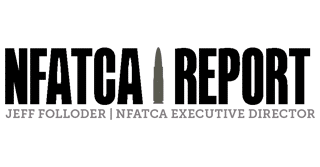JEFF FOLLODER | NFATCA EXECUTIVE DIRECTOR
There are currently a little over 170,000 machine guns, eligible for civilian transfer, currently showing as available on the National Firearms Registration and Transfer Record (NFRTR). All of these machine guns were registered before May 1986, and it is assumed that many of these weapons have a rich and storied history. Since there are so few of these weapons currently available, it is quite common for the NFATCA to receive requests from new owners who are trying to secure historical documentation on their latest acquisition. Inevitably, those requests wind up focusing on demands that the Bureau of Alcohol, Tobacco, Firearms and Explosives (ATF) yield to a Freedom of Information Act (FOIA) request. In truth, most of these demands have the appearance of falling upon deaf ears.
But appearances can be deceiving. FOIA requests represent something of an art form. A properly written FOIA request will guide the FOIA clerk to success, a road map, if you will. Assume that the clerk who receives and evaluates your request will be handling it in much the same way that a shady medical insurance provider would: look for the first opportunity to reject and be done with it. So, let’s not give that clerk (or his/her supervisor) the opportunity to reject your request. A well-written FOIA request will contain several critical elements:
- State that the request for information is filed pursuant to the Freedom of Information Act.
- Tell them where to look for the information that you will be requesting. Many people cite a nebulous “registry” of firearms. Only NFA firearms reside inside such a registry, so since the request will, presumably, involve an NFA item, clearly state and describe the nature of the data repository, what is in it and who maintains it under what authority. An example:
In accordance with laws and regulations, the NFA Division of the Bureau of Alcohol, Tobacco, Firearms and Explosives maintains the National Firearms Registration and Transfer Record (NFRTR), which is the central registry of all restricted weapons, as defined in 26 U.S.C. §5845. These weapons include items such as machine guns and short-barreled shotguns. In the registry, the NFA Division records a firearm’s identification, date of registration and the name and address of the person or entity entitled to legally possess the firearm. Registrations are indexed by name of the registrant and serial number of registered NFA firearms.
- Clearly identify the item(s) that you are inquiring about and state that the item(s) is (are) currently registered to you in the data repository you specified.
- Now comes the most important part: Asking for the information! Always bear in mind that much of the information contained in the NFRTR is considered to be confidential tax information. As such, this information cannot be divulged, even to the current registrant. It is far too easy for the FOIA clerk to see that you are requesting confidential tax information and reject the entire request, outright. Asking for “every document contained in the NFRTR pertaining to my machine gun” is most likely going to be summarily rejected. An example that stands a better chance of success:
I would like to obtain copies of all documents, including making and transfer, related to Machine Gun, model name, Serial Number XXXXXX, currently registered to me, with all confidential taxpayer information redacted. The requested documents would include, but are not limited to, ATF Form 5320.2 (Form 2), 5320.3 (Form 3), 5320.4 (Form 4), 5320.5 (Form 5) or their equivalents and any notes or additional reference materials associated with the registry entry of the aforementioned machine gun.
- Make sure to acknowledge that you understand that there may be a cost associated with filling your request and that you would like to be notified of the estimated amount of such fees (if applicable), before filling the request.
Is this recipe for success guaranteed? Of course not! You are dealing with the government, and often times it can feel like they are making up rules as they go along. Be prepared to stand your ground and appeal any rejection that you may receive. Often, success is achieved by continuing to refine and “narrow cast” your information request so that ATF has no choice but to deliver the information within the boundaries of the law.
•••
The NFATCA has been assisting our members and the NFA community in working with ATF to achieve positive results. We welcome your questions and your support. Feel free to reach out to us at info@nfatca.org.
Would you like to join our effort? Head over to nfatca.org and click on the Join Now! link on the left.
| This article first appeared in Small Arms Review V24N4 (April 2020) |











